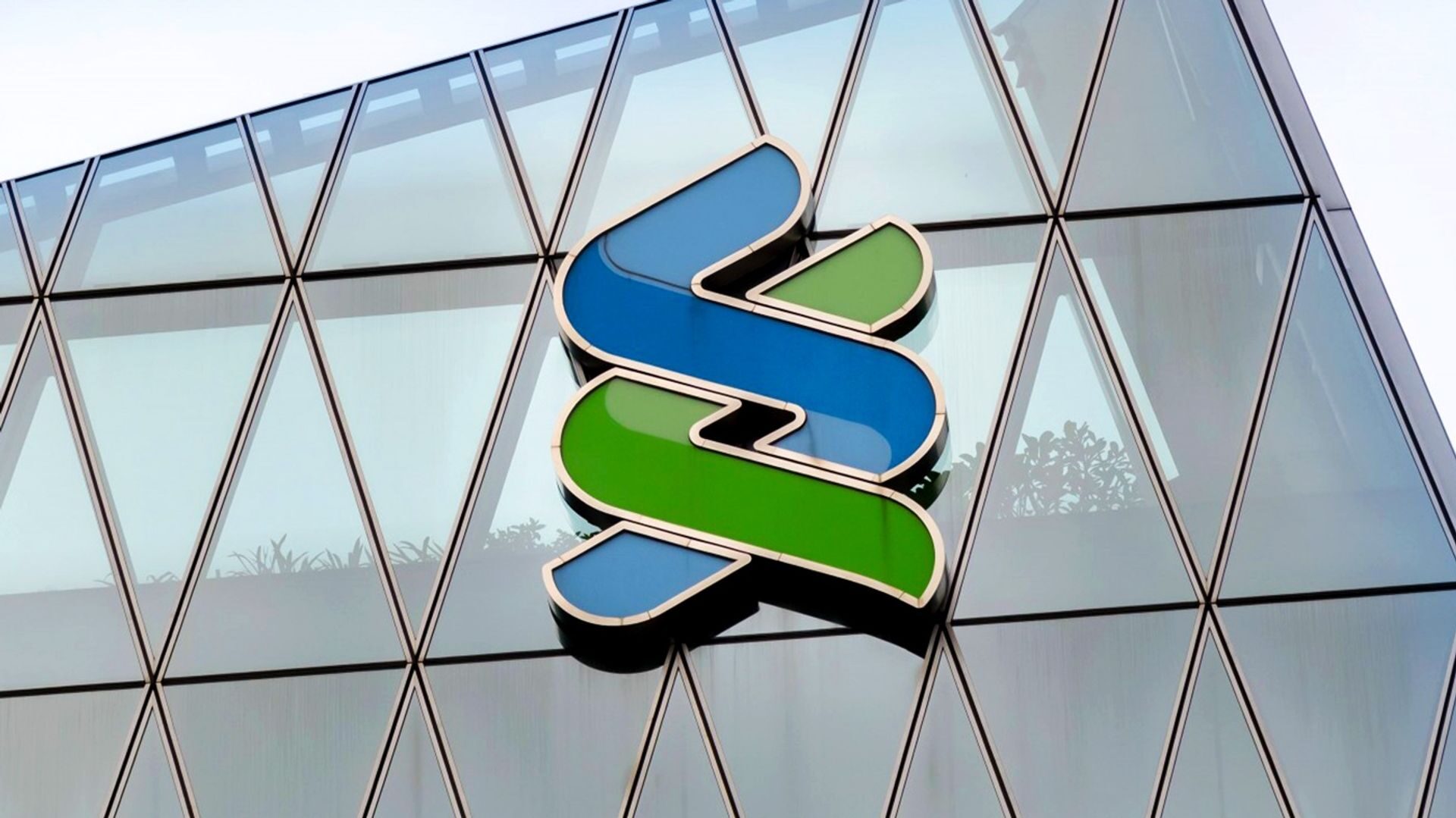BTC
$104,235.43
+
0.33%
ETH
$2,491.59
+
0.85%
USDT
$1.0004
+
0.03%
XRP
$2.1485
–
0.11%
BNB
$640.47
–
0.36%
SOL
$144.69
–
1.18%
USDC
$1.0000
+
0.01%
TRX
$0.2704
–
1.22%
DOGE
$0.1668
+
0.03%
ADA
$0.5924
–
2.12%
HYPE
$38.61
–
1.53%
WBT
$48.77
+
1.45%
SUI
$2.7807
–
1.52%
BCH
$459.14
–
1.16%
LEO
$9.1237
–
0.78%
LINK
$12.80
–
0.80%
XLM
$0.2489
–
1.20%
AVAX
$18.22
–
0.57%
TON
$2.9034
–
1.44%
SHIB
$0.0₄1155
+
0.59%
By Will Canny, AI Boost
Updated Jun 18, 2025, 4:55 p.m. Published Jun 18, 2025, 4:16 p.m.

- Stablecoins dominate the tokenization of real-world assets, and non-stablecoin assets are a small fraction of the market with significant room to grow, the report said.
- Standard Chartered said regulatory progress is encouraging, though inconsistent KYC requirements still pose challenges.
- Future growth will depend on targeting illiquid assets, such as private equity and commodities, where tokenization offers real efficiency or liquidity benefits, the bank said.
Stablecoins dominate the tokenization of real-world assets (RWA), but Standard Chartered (STAN) said it sees signs of a broader shift underway.
With just $23 billion currently in non-stablecoin RWAs, around 10% the size of the stablecoin market, the investment bank anticipates significant growth as regulatory clarity improves and the focus shifts to assets that benefit more meaningfully from being on-chain, it said in a research report Wednesday.
STORY CONTINUES BELOW
Tokenization is one of the main uses of blockchain technology and it is attracting attention and investment from the TradFi world. Stablecoins are cryptocurrencies whose value is tied to another asset, such as the U.S. dollar or gold. They play a major role in cryptocurrency markets and are also used to transfer money internationally.
Jurisdictions like Singapore, Switzerland, the EU and Jersey have made progress on regulation, the bank noted, but inconsistent know your customer (KYC) rules remain a barrier.
Still, the opportunity lies in targeting assets where tokenization adds real value, the report said.
“To unlock growth potential, we believe tokenization efforts need to focus on on-chain assets that are cheaper and/or more liquid than their off-chain equivalents, with shorter settlement times, or that solve an on-chain need,” wrote Geoff Kendrick, head of digital assets research at Standard Chartered.
The bank noted that tokenized private credit has shown promise by offering faster settlement and cost efficiencies.
In contrast, efforts to tokenize already-liquid assets such as gold or U.S. equities have seen limited traction as they fail to deliver clear on-chain advantages, the bank said.
The bank expects private equity and liquid off-chain commodities to be the next growth areas for non-stablecoin tokenization.
Read more: Stablecoin Market Could Grow to $2T by End-2028: Standard Chartered
Disclaimer: Parts of this article were generated with the assistance from AI tools and reviewed by our editorial team to ensure accuracy and adherence to our standards. For more information, see CoinDesk’s full AI Policy.
Will Canny is an experienced market reporter with a demonstrated history of working in the financial services industry. He’s now covering the crypto beat as a finance reporter at CoinDesk. He owns more than $1,000 of SOL.
“AI Boost” indicates a generative text tool, typically an AI chatbot, contributed to the article. In each and every case, the article was edited, fact-checked and published by a human. Read more about CoinDesk’s AI Policy.















